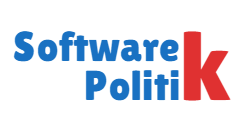Achieving true personal political sovereignty requires developing the ability to question, learn, and act from a place of deep knowledge and self-awareness. This path to autonomy and empowerment is not about adopting a rigid stance but about cultivating an inner balance that allows us to understand and respect the diversity of viewpoints and beliefs in the world. Here, we explore essential skills, from critical thinking to emotional management, that empower each person to advance toward individual sovereignty and embrace a broader, more enriched perspective on reality.
Self-education as a tool for a critical mind
Self-education is essential for anyone who wants to make informed decisions rather than relying solely on official or popular narratives. By actively seeking knowledge from various sources and studying different subjects, individuals can build a more complete view of the world. The broader our understanding, the greater our capacity to approach issues from multiple perspectives and develop empathy for differing viewpoints. This process involves not only learning but also shedding biases and accepting that truth has many facets.
This journey is particularly valuable for breaking free from the echo chambers that surround us. Accessing diverse media and cross-checking information allows us to escape manipulation, identify biases, and adopt an open-minded approach. Resources like the articles “Trauma and Political Preferences” and “Why Do People Radicalize So Much?” can be valuable for understanding the influences that shape our ideas, encouraging us to explore how personal emotions and experiences affect our perspectives.
Deprogramming inherited beliefs and concepts
To achieve authentic autonomy, questioning inherited beliefs and concepts is crucial. This process involves critically examining everything we have taken as truth or as natural, analyzing ideas imposed on us since childhood, from family or cultural environments. Developing the ability to see and respect other viewpoints requires abandoning rigid attitudes and recognizing that absolute truths rarely exist. Truth, at its core, is complex and nuanced, and understanding this helps us approach topics with a balanced view, without blindly leaning toward any one side.
This constant questioning promotes internal balance, allowing us to discover which values and beliefs genuinely resonate with our identity, rather than merely adopting those we inherited. By examining our ideas and beliefs critically, we become less prone to blindly follow family traditions or conventions, creating space for authenticity and personal growth.
Economic self-sufficiency and financial decentralization
Economic self-sufficiency is a pillar of personal and political independence. Those who rely heavily on external support or face economic constraints often find their decisions influenced by the need to maintain that support or stability. Financial autonomy allows individuals to question and decide with less pressure, fostering free thought that is less subject to external interests.
In this regard, financial decentralization is also essential. By diversifying income sources and avoiding dependency on a single sector or investment, people gain greater economic security, enabling them to make decisions from a more liberated position. Learning about personal financial management and investment is an important step toward independence, helping avoid pressure from external factors.
Developing independent critical thinking
To create an informed and responsible citizenry, cultivating critical thinking is necessary, enabling individuals to analyze situations independently without relying on the opinions of authority figures or influence groups. Critical thinking involves reflecting on and evaluating one’s ideas, not merely echoing slogans without question, and, above all, avoiding the influence of family traditions or trends that have not been thoroughly examined.
Avoiding idolization of political figures, ideologies, or parties is also important. When we idealize a leader or party, we lose objectivity and become vulnerable to manipulation. Instead, it is healthier to evaluate ideas and projects impartially, based on their merit and potential contribution to the common good, rather than following them blindly.
Building empathy and avoiding dehumanization
The ability to empathize and not dehumanize those with different perspectives is key to a healthy, balanced political life. Instead of seeing those who disagree with us as enemies, it is beneficial to recognize and respect the experiences and contexts that have shaped their views. This empathy fosters more constructive, human-centered dialogue, contributing to a less polarized society.
Self-reflection is a practice that enables us to assess our emotional reactions and personal traumas, preventing them from unduly influencing our decisions and viewpoints. Learning not to victimize ourselves and taking responsibility for our actions and thoughts strengthens emotional independence, making us less vulnerable to external manipulation.
Digital literacy and legal knowledge
To protect ourselves and act knowledgeably in today’s world, acquiring digital literacy and basic legal knowledge is essential. With the rise of technology and the internet, understanding how information is distributed and how public opinion can be manipulated is crucial. Digital literacy enhances privacy protection, while legal knowledge provides tools to defend our rights and act knowledgeably.
Both competencies offer a practical foundation for autonomy, as they help individuals not only recognize manipulation but also safeguard their independence and act in line with their rights.
Cultivating emotional intelligence and embracing cultural diversity
Emotional intelligence is crucial for maintaining healthy relationships and making decisions from a place of calm and rationality. This skill allows us to manage our emotions, understand how they impact our decisions, and avoid impulsive reactions. Emotional intelligence is essential for sustaining inner balance and preventing emotional factors from clouding our judgment.
Embracing cultural diversity also broadens our perspectives. Learning about other cultures or languages provides a view that goes beyond our own experiences and fosters empathy with people from different backgrounds. Besides travel, engaging with people from diverse cultures within our communities is an enriching way to see the world from various angles, helping us appreciate the range of beliefs and perspectives that exist.
Personal sovereignty as a path to inner freedom
Personal political sovereignty is not just a collection of skills but a continual commitment to self-education, self-questioning, and the pursuit of inner balance. This process empowers us to adopt a critical yet open stance, learning to respect a diversity of ideas and act from a place of genuine independence. In a world that constantly seeks to influence us, this path to sovereignty becomes an invaluable tool for living in accordance with our own values and contributing to a more just and conscious society.




